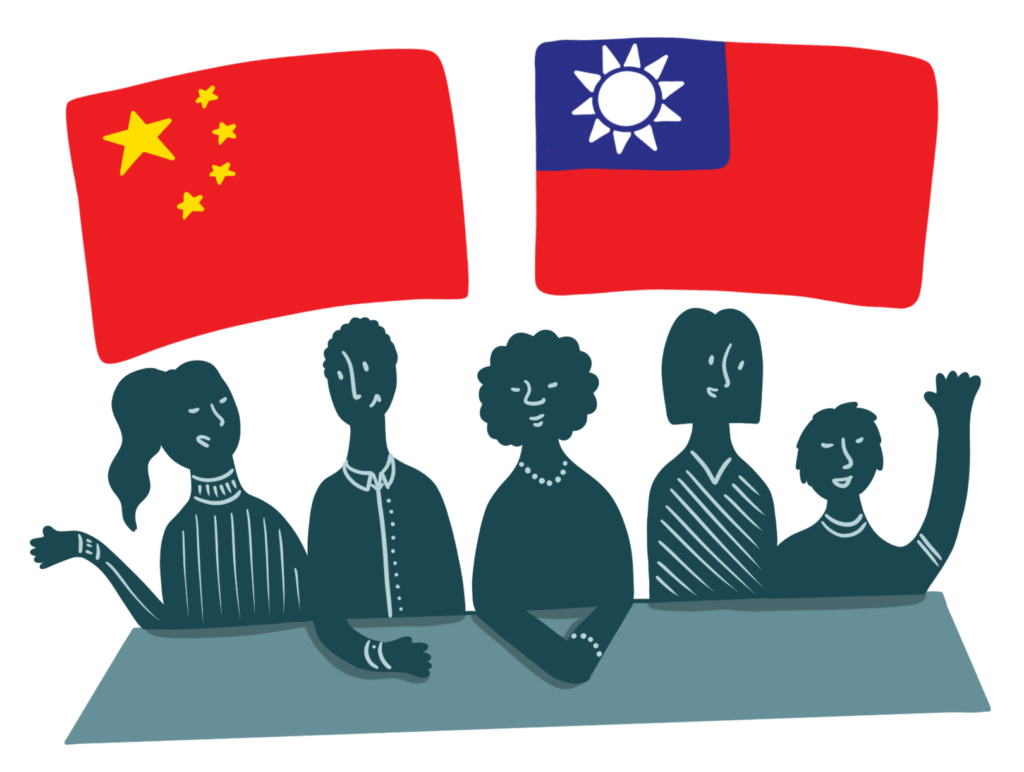
The International Affairs (IA) department hosted a panel discussion on Oct. 11 that offered different viewpoints on China and Taiwan’s relations. The panel centered on what the future could hold if a conflict were to break out.
The panel consisted of IA Professors Kyle Lascurettes, Bob Mandel, Matt Scroggs, Laura Vinson and Francis Abugbilla. Each had a unique perspective on the issue. Lascurettes and Scroggs both focused on military capabilities, while Vinson and Abugbilla focused on the Global South. Vinson concentrated on the diplomatic aspect, and Abugbilla the economic one. Mandel added to the discussion by posing questions to fuel conversation instead of taking a specific approach to the topic.
While the staff had time set aside to express their opinions, the panel also responded to students’ questions and arguments. Mandel expressed the importance of student participation in these panels.
“This is people looking at things from a broad perspective, and it kind of empowers students to say, ‘Well, I’m not an expert on it either, but see it a different way,’” Mandel said. “The whole experience is supposed to be toward tending empowerment and agency and getting students willing to express opinions and questioning of views from established figures, like the way established figures question students’ opinions.”
IA major Logan Drain ’25 chimed in during the discussion.
“Southeast Asia has some sort of stake in the situation,” Drain said. “While they do get economic and trade benefits from China, they also do trading with Japan. If the status quo and economy are destabilized, that affects Southeast Asia. If leaders perceive that more clearly, wouldn’t they have leeway to force China into negotiations?”
This opened up a broader discussion about various regions worldwide and their ties to the situation. Vinson argued that with all the alternative options for negotiations, Southeast Asia might be a better option than North America, Latin America or Africa for filling that role.
Drain suggested Singapore as that middle ground.
“Given Singapore’s positive relationship with African states and the U.S., it might try to facilitate a peaceful negotiation between China and Taiwan,” Drain said.
IA and Sociology Anthropology double major Rocío Yao ’24 posed a question with a constructivist approach to the topic.
“Xenophobia in domestic politics plays a role in global order,” Yao said. “Anti-China politics is inherently racialized and hurts all Asian populations. How do you think that influences domestic politics, individuals and global order?”
Lascurettes responded, by pointing out the similarity between xenophobia influencing the Trump Administration’s foreign policy, and how that lens affects Western feelings toward China. He argued it has an influence on the support for intervention which is rooted in Anti-China sentiments, but that it can also lead to non-intervention sentiments given that the Taiwanese population is also part of the Asian community.
Mandel responded to the same question, adding that bigotry was playing a non-obvious role. He also compared it to the U.S. foreign policy against China during the beginning and height of the pandemic. Many other students challenged the professor’s viewpoints and asked questions that moved the discussion forward, and all parties chimed in over the course of 90 minutes.
“We wanted to highlight all the faculty in IA getting together to discuss important issues and show how we can differ from each other and still have respect, and just because we have different views, we don’t undercut each other,” Mandel said. “We accept that not only as a reality, but something we loved and that we emphasize different things from each other.”
The staff expressed wanting to hold another panel next semester and plans on asking for student input to decide the topic. For the IA department, such debates are intended to promote respectful differences of opinion and tolerance for the staff and students that are involved.
Subscribe to the Mossy Log Newsletter
Stay up to date with the goings-on at Lewis & Clark! Get the top stories or your favorite section delivered to your inbox whenever we release a new issue.

Leave a Reply